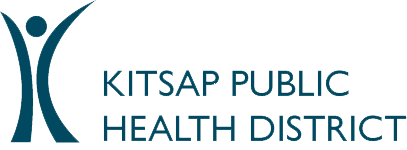
ACTIONS REQUESTED
BE AWARE the Substance Abuse and Mental Health Services Administration (SAMHSA) and the Drug Enforcement Agency (DEA) announced the elimination of the requirement for prescribers to have a DATA 2000 (X) waiver to prescribe buprenorphine.
- All practitioners with a DEA registration that includes Schedule III authority can now prescribe medications for opioid use disorder as they would any other medication.
- There are no limits on the number of patients receiving prescriptions.
- See SAMHSA Buprenorphine Quick Start Guide for facts and checklist for prescribers.
BE AWARE of training requirements after June 27, 2023. New or renewed DEA registrants must have eight hours of training on treatment and management of patients with opioid use disorder.
BE AWARE that the DEA announced extended current telemedicine flexibilities through Dec. 31, 2024. This includes access to prescriptions for controlled substances via telemedicine encounters.
BE AWARE of state Health Care Authority resources about medications for opioid use disorder (MOUD).
ENSURE patients have access to naloxone if they, friends or loved ones are at risk of overdose.
- Naloxone is covered by Medicaid in Washington state.
- Naloxone can be dispensed at pharmacies without a prescription under the statewide standing order.
- Naloxone can be ordered by mail in Washington state.
- Narcan, the name brand for Naloxone, is now available over the counter.
BE AWARE of the emergence of drug xylazine in Washington state. Review FDA guidance to health care professionals, released in November 2022.
- Learn more by watching a recording of the University of Washington Addictions, Drug and Alcohol Institute (ADAI) Webinar: What’s the Latest on Xylazine? (Feb 15, 12pm PT).Slides from the webinar are available here.
REDUCE STIGMA associated with drug use. With the escalating drug crisis in our community, state, and nation, reframing the way in which we think about and describe people who use drugs (PWUDs) is a key component in reducing the stigma of drug use and the subsequent reluctance of PWUDs to accessing healthcare.
- Reframing the language around drug use is essential to changing perceptions, as it shifts the focus of drug addiction from being a moral, social, or criminal issue to a medical issue, which deserves treatment.
- The language we use to address PWUDs can have damaging effects. Terms such as “drug abuser” and “addict” carry negative connotations. When PWUDs adopt these terms for themselves they are more likely to experience self-stigma and “accept” that they cannot recover.
BACKGROUND
Kitsap County and communities throughout the United States are experiencing a worsening opioid crisis. 57 opioid-related deaths were reported in Kitsap in 2022. Emergency medical services (EMS) data show a response to 340 possible overdoses in the first three quarters of 2023. This was up from 275 possible overdoses in 2022, 229 in 2021 and 178 in 2020.
Medications for opioid use disorder (MOUD) — including buprenorphine — are recommended to help patients overcome opioid use disorder and sustain recovery. Previously, practitioners were required to apply for and hold a special federal waiver prior to prescribing buprenorphine for the treatment of opioid use disorder. That requirement has been removed.
Currently, providers must have a valid DEA registration and must be authorized to prescribe buprenorphine in the state in which they deliver care. Visit the SAMHSA Waiver Elimination (MAT Act) page to learn more about training requirements, prescription guidelines, and other requirements for administering opioid use disorder medications.
MORE RESOURCES
- SAMHSA Waiver Elimination (MAT Act) resources and FAQ
- SAMHSA Buprenorphine Quick Start Guide
- Washington Healthcare Authority Medications for opioid use disorder
CONTACTING THE HEALTH DISTRICT
Call us at 360-728-2235 and you will be routed to the appropriate program. Includes reporting notifiable conditions 24 hours a day, 7 days a week.
This advisory is also posted on the health advisory page of our Provider Resources website, providers.kitsappublichealth.org.
